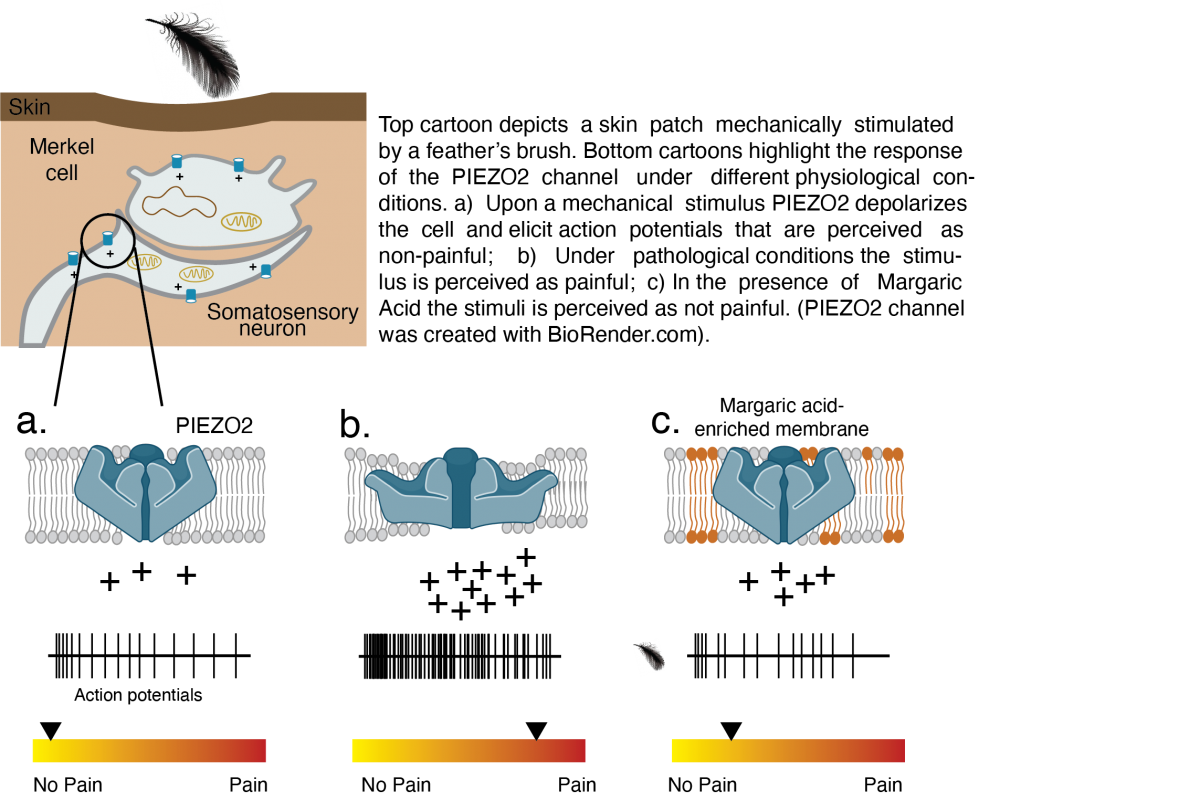Margaric Acid Decreases PIEZO2 Mediated Pain
Some existing therapies for treatment of pain are administered systematically and have significant side effects, such as addiction and drowsiness. Alternative therapy that does not impair normal touch function could be used to treat pain caused by mechanical injury or chronic inflammation. Administration of margaric acid was shown to ameliorate pain in mouse models of pain. In vitro data shows that margaric acid counteracts PIEZO2 (Piezo-type mechanosensitive ion channel component 2) potentiation evoked by bradykinin (i.e. a peptide that promotes inflammation) by reducing the mechanocurrents up to non-inflammatory levels. Margaric acid seems to be specific to target mechanical pain as it does not significantly alter the electric excitability of mice dorsal root ganglia neurons or human iPSC-derived neurons. It mainly decreases action potential firing evoked by mechanical stimulation.
The National Center for Complimentary and Integrative Health (NCCIH) seeks licensees and/or commercial partners to develop topical formulations of margaric acid to treat allodynia, neuropathy, and pain caused by chronic inflammation.

Competitive Advantages:
- Not addictive
- Topical application
- Fewer side effects
Commercial Applications:
- Treatment of pain caused by mechanical injury
- Treatment of pain caused by chronic inflammation (e.g., rheumatoid arthritis)
- Treatment of allodynia
